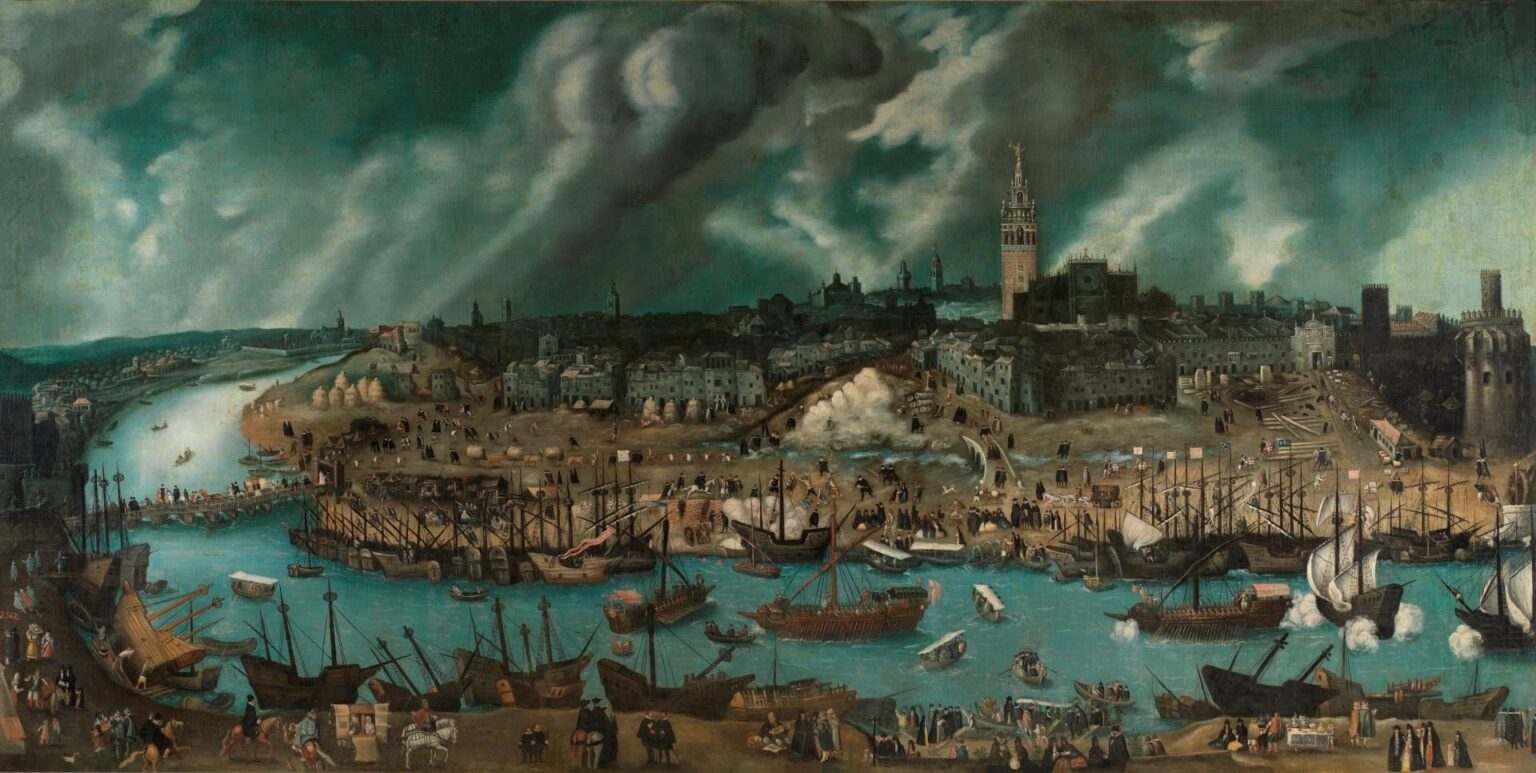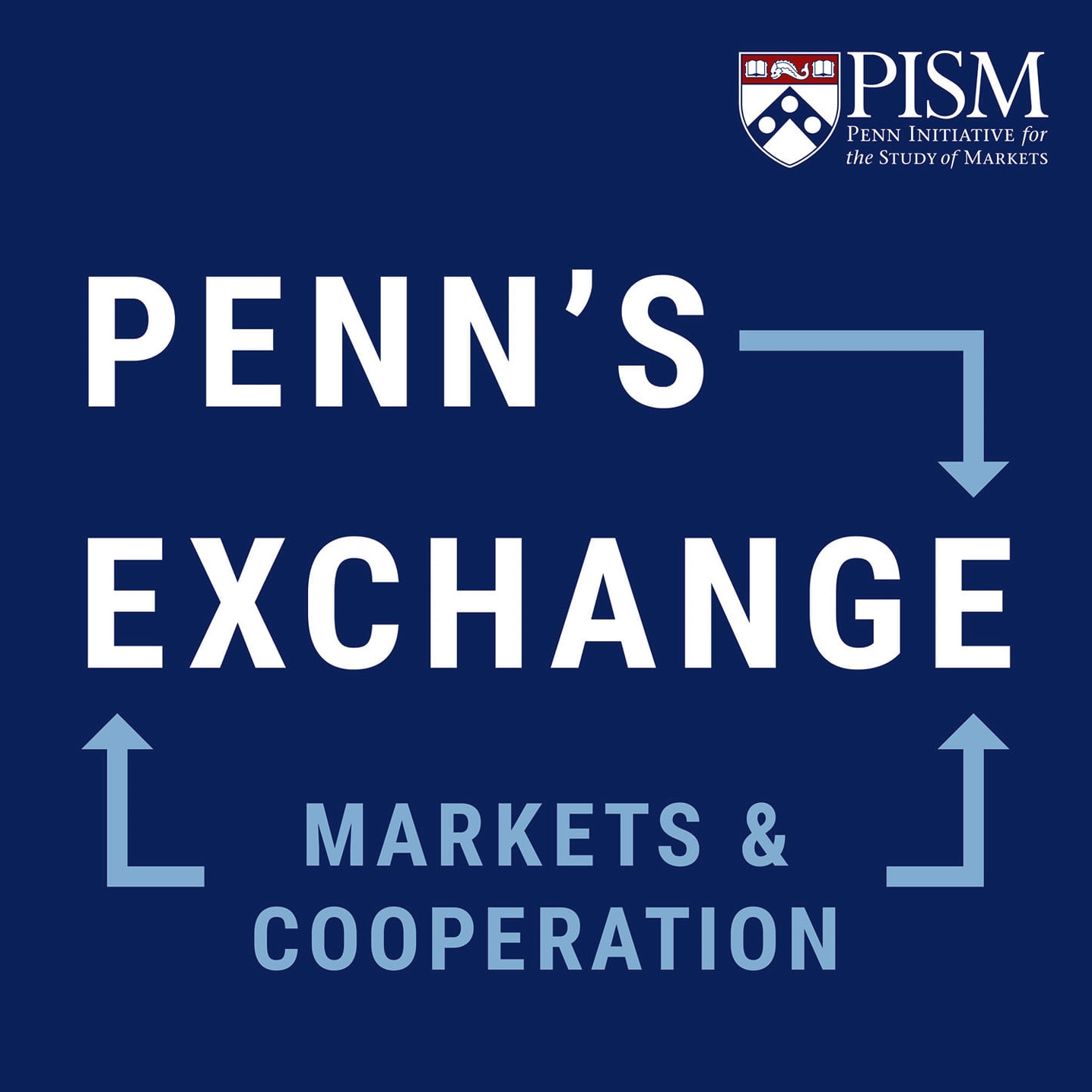Episodes
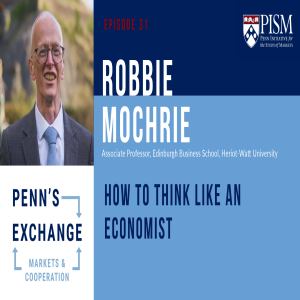
Friday Sep 27, 2024
Robbie Mochrie on How to Think like an Economist
Friday Sep 27, 2024
Friday Sep 27, 2024
The questions of what economics is and the role of an economist have long been at the heart of the profession, igniting extensive debate about the nature, scope, potential, and limitations of the discipline. Today, we’ll take a historical approach to these issues, exploring how past thinkers—ranging from Aristotle and Aquinas to Adam Smith and the latest Nobel Prize winners in economics—have defined and approached the study of economics.
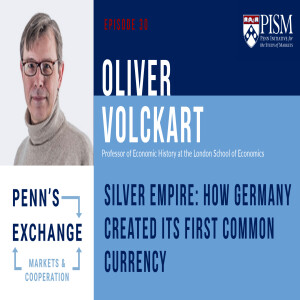
Monday Jul 22, 2024
Monday Jul 22, 2024
The concept of a monetary union today implies a multilateral entity that centralizes the emission of a common currency shared by multiple countries. This arrangement provides benefits, such as lower transaction costs, but poses challenges, especially without a complete fiscal union, which can create perverse incentives. However, monetary issues are not new; they have been a consistent aspect of human organizations throughout history. Today, we will discuss how the politically fragmented German lands under the Holy Roman Empire established a common currency in the sixteenth century and examine the debates surrounding its perceived success or failure.
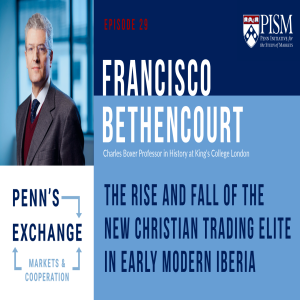
Wednesday Jun 12, 2024
Wednesday Jun 12, 2024
In 1492, Spain's Alhambra Decree forced Jews to convert to Christianity or face expulsion, leading many to become conversos. Portugal issued a similar edict in 1496. Driven by a desire for religious homogeneity, these measures led to persistent discrimination based on Jewish ancestry. How did this new group of New Christians defend their interests and thrive in economic and social spheres, building connections with Europe, Africa, and the Americas? Today, we talk with Dr. Bethencourt about his new book, "Strangers Within: The Rise and Fall of the New Christian Trading Elite."
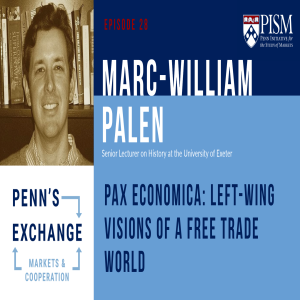
Tuesday May 07, 2024
Marc Palen on Pax Economica and the Left-Wing visions of a free trade world
Tuesday May 07, 2024
Tuesday May 07, 2024
In today's political discussions, the endorsement of free trade is commonly linked with perspectives that lean toward the right side of the spectrum. However, it's crucial to recognize that the roots of free trade and classical liberalism extend beyond contemporary left-right divides. As a result, the promotion of free trade has profoundly impacted modern ideologies across the political spectrum. Originating as a response to the imperialist and mercantilist policies of the early 19th century, the ideals of free trade possess a profound intellectual legacy intertwined with the narratives of historical social radicals, feminists, and pacifists. Joining us today is Marc Palen, author of "Pax Economica: Left-Wing Visions of a Free Trade World," who will delve into the themes explored in his recent publication.
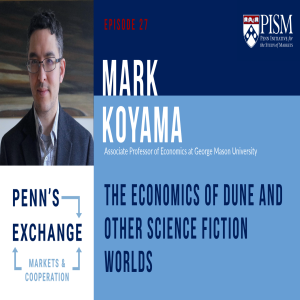
Monday Mar 25, 2024
Mark Koyama on the Economics of Dune and Science Fiction Worlds
Monday Mar 25, 2024
Monday Mar 25, 2024
Sci-fi builds alternative realities from current science, spanning space travel, AI, genetics, and quantum mechanics. Its appeal lies not only in scientific accuracy but also in the constraints it imposes on characters within these worlds. Audiences are drawn to the social questions it poses, exploring diverse societies, cultures, and interpersonal dynamics. Themes delve into human behavior, societal structures, power dynamics, and the impacts of technology. Mark will explore how social science influences sci-fi narratives and the insights they offer through a discussion of one of the most important pieces of science fiction: Dune.
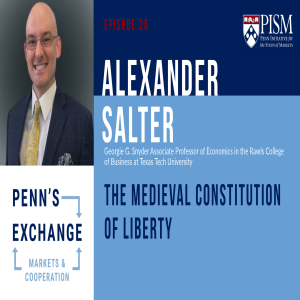
Friday Feb 23, 2024
Alex Salter on the Medieval Constitution of Liberty
Friday Feb 23, 2024
Friday Feb 23, 2024
The Great Enrichment stands as one of humanity's pivotal moments, igniting in Europe during the 17th to 19th centuries, prompting countless attempts to decipher its origins. Today, Dr. Salter will delve into his latest collaborative work with Professor Andrew Young, titled "The Medieval Constitution of Liberty: Political Foundations of Liberalism in the West." In this book, they argue that Western exceptionalism traces back to the intricate and fragmented political systems of Medieval Europe. These structures, they assert, provided the fertile ground for effective governance, which in turn spurred the generation of wealth.
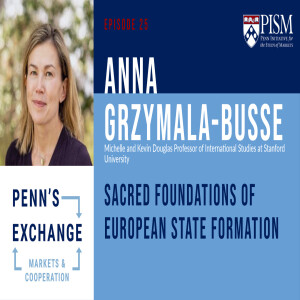
Sunday May 14, 2023
Anna Grzymala-Busse on the Sacred Foundations of European States
Sunday May 14, 2023
Sunday May 14, 2023
From the 11th to 14th centuries, the Roman Catholic Church was Europe’s largest and most organized institution. Unlike any other entity at the time, it had the capacity to tax, create law and administer justice. Secular authorities had to grapple with it. They competed and allied with it. But most importantly, they emulated it. Today we will be talking with Dr. Anna Grzymala-Busse about her most recent book, Sacred Foundations: The Religious and medieval roots of the European State.
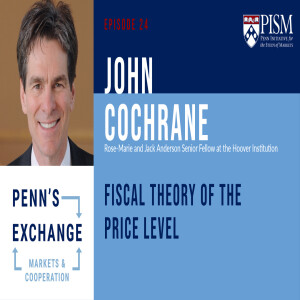
Sunday Apr 16, 2023
John H. Cochrane on the Fiscal Theory of the Price Level
Sunday Apr 16, 2023
Sunday Apr 16, 2023
"Too much money spent chasing too few goods" is the preferred explanation that most people think about when discussing the causes of inflation. But how generally applicable is said argument to our modern economy? Today we will be talking with Dr. John Cochrane, who will speak about his most recent book, The Fiscal Theory of the Price Level, where he argues that changes in price levels depend rather on the expectations of the ability of governments to repay their debt
